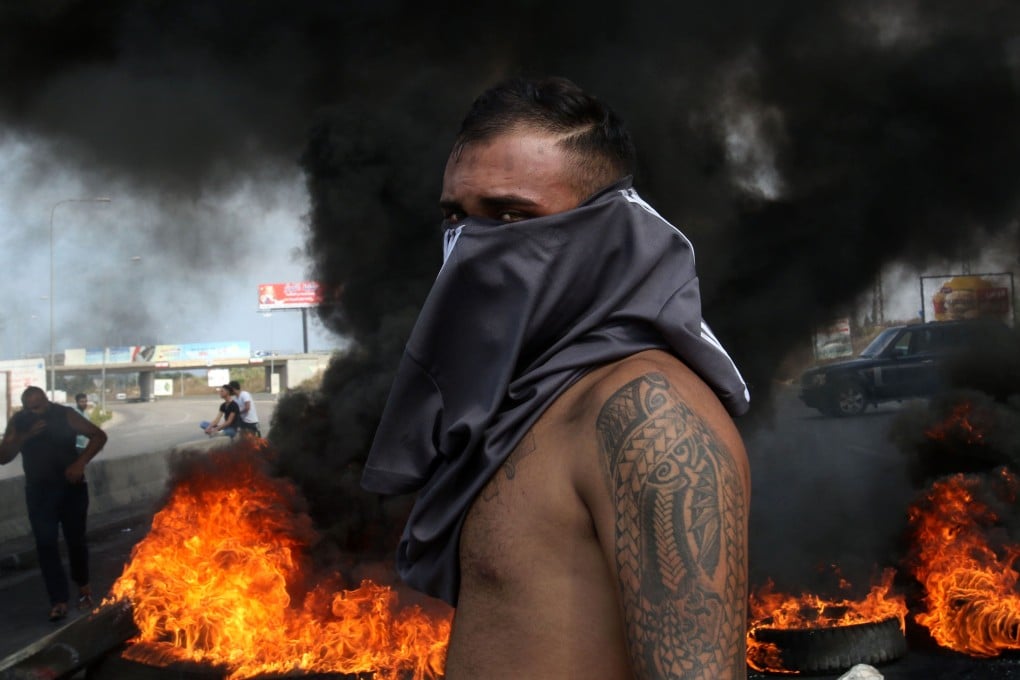Protests sweep Lebanon as fury at ‘totally corrupt’ ruling elite grows
- Thousands march in streets, burning tyres and blocking roads as they demand that leaders step down
- Prime Minister Saad al-Hariri blames political rivals, gives government 72-hour deadline to stop blocking his reforms

Thousands of protesters outraged by corruption and proposed tax hikes burned tyres and blocked major motorways in Lebanon on Friday, prompting the premier to give his government partners three days to support a reform drive.
Demonstrations flared on Thursday, partly sparked by a proposed tax on calls via messaging apps such as WhatsApp, and grew into the largest in recent years, threatening to topple Prime Minister Saad Hariri’s fragile coalition government.
After his speech, clashes flared in central Beirut’s Riyadh al-Solh Square between demonstrators and security personnel, who fired volleys of tear gas to clear the plaza.
Thousands of people of all ages, sects and political affiliations had brought the capital to a standstill Friday, with demonstrations reported across the country.

The protesters are demanding a sweeping overhaul of Lebanon’s political system, citing grievances ranging from austerity measures to poor infrastructure.
In a televised address Friday evening, Hariri said he understood their anger and was trying to push through change.